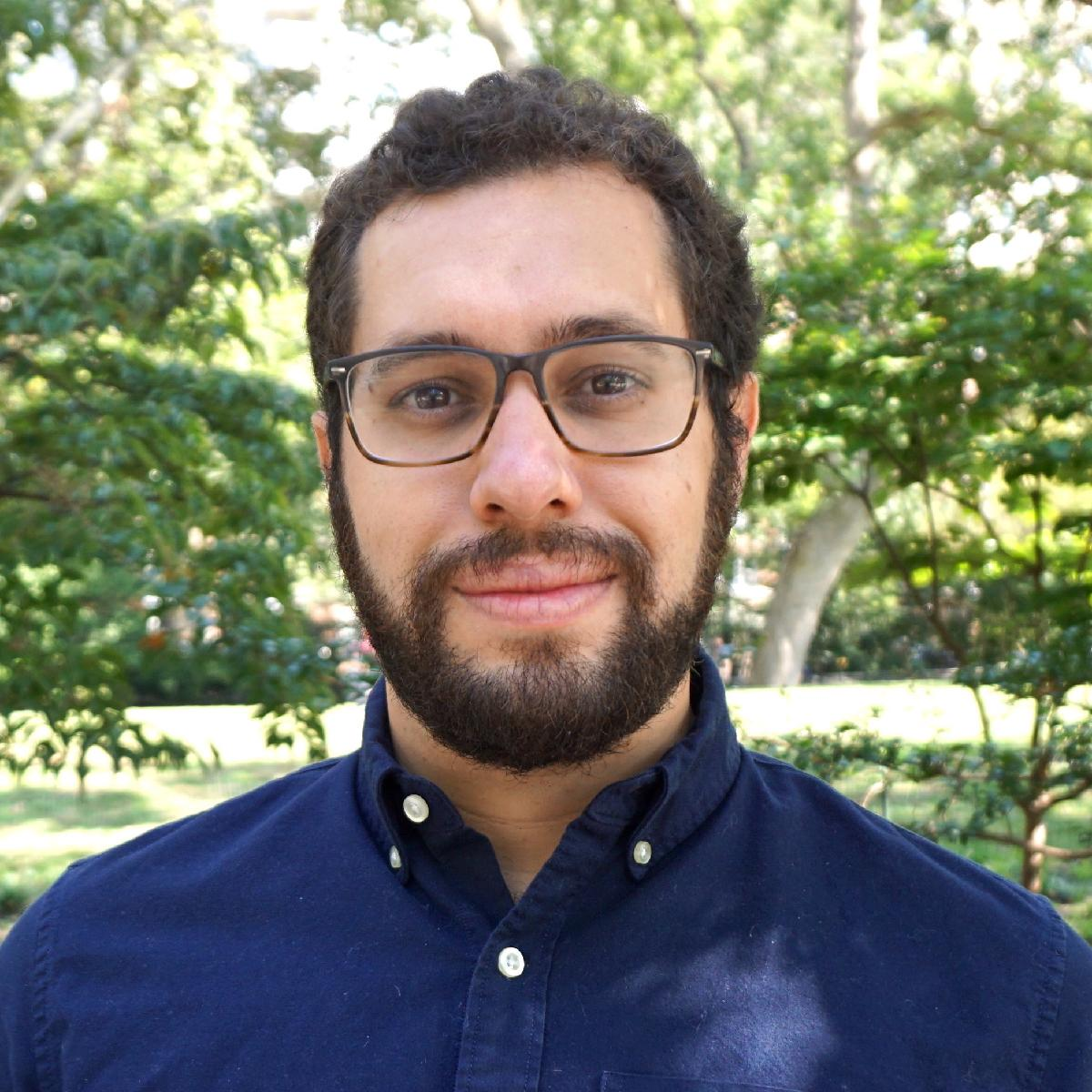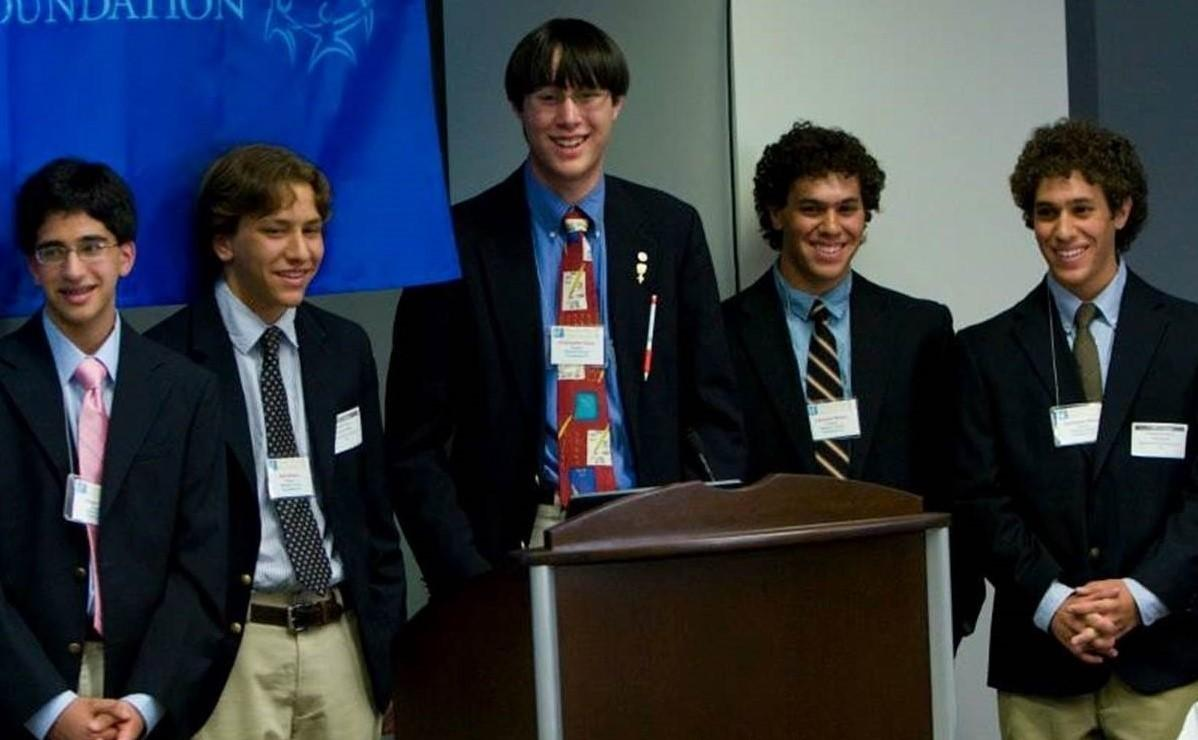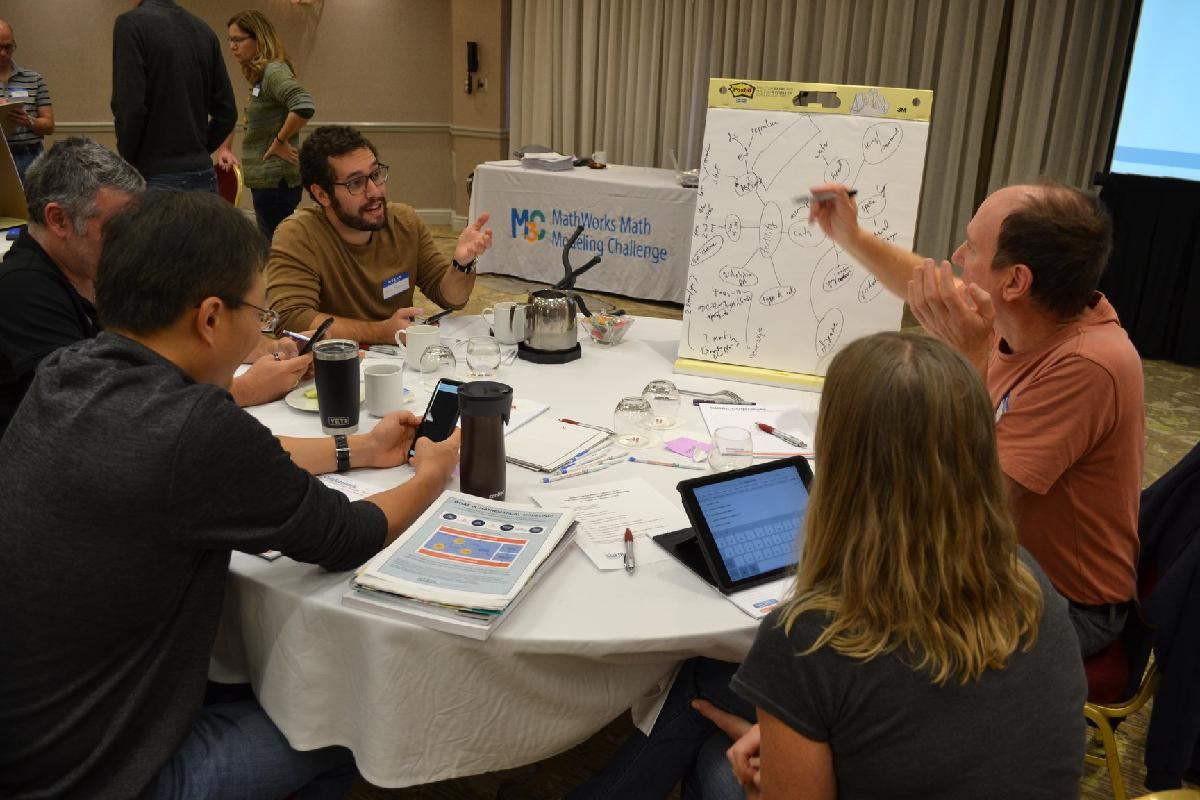What did you learn at the competition?
Why did you choose to get involved the M3 Challenge in high school?
My math teacher Mr. George Lewis (who coached our high school math team) found out about the challenge and shared it with several of us on the math team. My twin brother and I were seniors and were starting to get really interested in economics and the math behind it ÿ we were taking an AP Economics class, and at home we were reading everything we could about stock and bond pricing, options, how the federal reserve works, etc. The previous years problem was the
Beat the Street problem about stock trading, so we thought anything along those lines sounded like it would be really fun to work on. The
ethanol problem was really exciting because I was also really interested in environmental science and alternative energy at the time (I was building a small windmill that spring with some friends for our “senior project”).
You are now a member of the Problem Development Committee(PDC) for the M3 Challenge. How does it feel to be on the other side of the table?
It’s a lot of fun being on the other side! Every year we explore many different possibilities for problems, often based on suggestions we receive from outside the PDC ÿ this gives us a chance to explore and learn about applications of math modeling in a huge variety of different fields, from ecology, to civil engineering, to marketing. When I studied applied math during my undergrad, what I found most exciting was how broad it was ÿ the same powerful mathematical language and toolkit can be used anywhere. However, as I have gotten further along in my career, the sorts of problems I work on have necessarily gotten a lot narrower: these days I almost exclusively focus using math to design faster algorithms. Working with the PDC gives me a really nice opportunity to take a step back and learn about other topics I wouldn’t usually get to think about. It’s also fun to see how far students have progressed from when I competed. The top solutions we receive now are pretty incredible ÿ my team won an honorable mention in 2008, but now we wouldn’t stand a chance!
How did you use MATLAB in the competition and/or academic work?
I didn’t know about MATLAB in high school. I was really excited to be learning how to code in Java, but wasn’t very good at it yet. In the competition we stuck to Excel and graphing calculators. In college I used MATLAB quite a bit, starting in my digital signal processing class, and also in image processing and computer vision classes. I also used MATLAB for both my undergraduate thesis in Applied Mathematics (on Fast Laplace Transform algorithms) and in Computer Science (on graph-based machine learning methods).
How Did the Competition Help You Find a Job?
Do you think participating in the M3 Challenge influenced your education and career trajectory? If so, how?
The M3 Challenge definitely had a big influence on my decision to study applied math in college, which ultimately lead to my career in theoretical computer science. While I came out of high school loving math, I knew I did not want a career in pure math ÿ I wanted to work closer to applications. M3C opened my eyes to possibility of doing so. Through the competition I learned about SIAM, and spent a lot of time combing through resources on their website, getting inspired about possible careers. More concretely, before it was supported by MathWorks, M3C was supported by a credit rating company called Moody’s. Doing well in the M3 Challenge helped me get an internship with that company in college, and that was my first real exposure to math modelling “in the wild’. I didn’t stay in finance, but the experience was invaluable. Finally, the M3 Challenge was my first experience putting together a research paper. The experience of presenting technical ideas in an easily digestible and compelling way was challenging, but rewarding. Technical writing is now a major part of my job as a professor and researcher, so learning about its value early on was important.
What Are You Working On Today?
In your current role at NYU Tandon School of Engineering do you use MATLAB/Simulink?
As a professor, my job is split down the middle between teaching students (I teach machine learning and algorithms) and working on research, both with others at NYU and with outside collaborators. My research focuses on applying mathematics to the design of more efficient computer algorithms. Even though this work is pretty theoretical (most of my research papers are centered around proving theorems), I use MATLAB almost everyday to support my work. I use it to plot and compare functions, quickly test out different examples, and to prototype new algorithms. I have a window open right now – I was using MATLAB to construct and compute eigen decompositions of various example Toeplitz matrices, which was helping me better understand a problem I’m working on related to the optimal low-rank approximation of these matrices.
What big project are you working on right now?
I’m really interested in randomized algorithms: i.e., procedures which make at least some decisions based on the random flip of a coin. Surprisingly, for a lot of basic problems in computer science, like finding the minimum cut in a graph, our randomized algorithms are significantly faster than the best deterministic methods that don’t use coins. Recently, I have been working on using randomness to speed-up algorithms for common problems in linear algebra, like computing the eigenvalues of a matrix. Faster algorithms for linear algebra problems can have huge impact on the many scientific and engineering disciplines that rely on large-scale matrix computations for simulation, data analysis, and more. Maybe some of the methods we’re working on will end up in MATLAB some day!
“Competitions give students the chance to “learn by doing”, and help build experience working on a team in a time sensitive, demanding environment.”
Why do think student competitions are valuable?
I think competitions are one of the best ways for students to push themselves to learn more beyond the classroom, and to dive deeper into the subjects they are most passionate about. They give students the chance to “learn by doing”, and help build experience working on a team in a time sensitive, demanding environment. For teachers, coaching an M3C team or another competition team can be a good way to test new curriculum material (e.g. on math modelling) with a dedicated set of students.
What advice would you give high school students who are participating in the M3 Challenge?
If you enjoy working on the M3 Challenge, then know that there are many internships and careers where you can do similar work every day (and get paid for it)! Especially with the growth of “data science” positions, there is an increasing need for professionals who excel at the the sort of exploratory problem solving and modelling encouraged by the M3C questions.




 Cleve’s Corner: Cleve Moler on Mathematics and Computing
Cleve’s Corner: Cleve Moler on Mathematics and Computing The MATLAB Blog
The MATLAB Blog Guy on Simulink
Guy on Simulink MATLAB Community
MATLAB Community Artificial Intelligence
Artificial Intelligence Developer Zone
Developer Zone Stuart’s MATLAB Videos
Stuart’s MATLAB Videos Behind the Headlines
Behind the Headlines File Exchange Pick of the Week
File Exchange Pick of the Week Hans on IoT
Hans on IoT Student Lounge
Student Lounge MATLAB ユーザーコミュニティー
MATLAB ユーザーコミュニティー Startups, Accelerators, & Entrepreneurs
Startups, Accelerators, & Entrepreneurs Autonomous Systems
Autonomous Systems Quantitative Finance
Quantitative Finance MATLAB Graphics and App Building
MATLAB Graphics and App Building







Comments
To leave a comment, please click here to sign in to your MathWorks Account or create a new one.